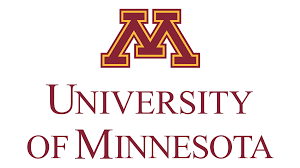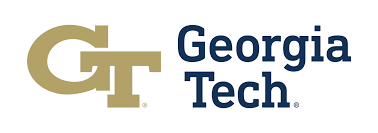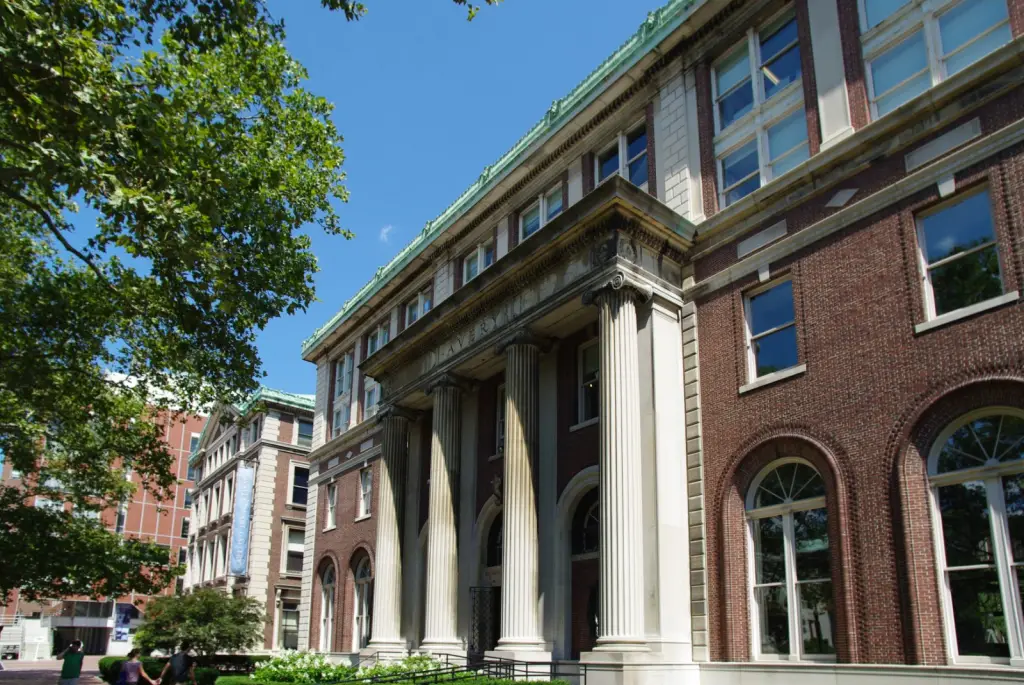Want to know more abut the Best Schools For Economics In the US and make an informed decision? Here is good place to start.
Earning a degree in economics can open the door to a wide variety of career opportunities in fields such as finance, business, consulting, and government.
With so many universities offering economics programs, it can be overwhelming to choose the right one. To help you narrow down your options, we’ve compiled a list of the 25 best schools for economics in the US based on factors such as academic reputation, program strength, graduate outcomes and ranking from reputable sources such as US News and World Report.
This list is an excellent starting point for students who are considering studying economics in the United States. Each of these schools is highly respected and offers a top-notch economics program, providing students with the knowledge, skills, and connections they need to succeed in this field.
Make an informed decision on your education path and discover the best economics programs the US has to offer.
Table of Contents
Content Guideline
When considering economics schools, it is important to consider the following factors:
- Academic requirements: Check with the economics schools and programs to understand the math and statistics classes required, such as Calculus and Econometrics.
- Career opportunities: Research earning potential and opportunities in various fields after graduation. Check with the career center for updated information.
- Department size and student-to-faculty ratio: A smaller department with a lower ratio may offer more individualized attention and resources.
- Research opportunities: Look into internships, co-ops, and research assistant positions for hands-on experience.
- Specialization: Some economics schools may have a focus on certain areas of economics, such as public economics or behavioral economics.
By considering these factors, students can make an informed decision on their education path and find the best school for their specific needs.
Please note that schools are selected based on our criteria (at the end of the article), and ranked by the latest acceptance rate.
#25. University of Arizona


- Acceptance rate: 87.3%
- Average entry score: 1120-1370 SAT or 21-29 ACT
- Student-to-faculty ratio: 17:1
- Estimated cost of attendance (tuition and fees): $30,416-$50,000
- Average earning potential for graduates: $99,020-$123,490
UA’s economics program is particularly strong in the areas of natural resource economics and environmental economics.
We like the school’s focus on interdisciplinary research and the opportunity for students to work with faculty on real-world projects. Economics graduates from UA have careers in government, research, and consulting.
#24. University of Minnesota-Twin Cities


- Acceptance rate: 73.2%
- Average entry score: 1330-1500 SAT or 27-32 ACT
- Student-to-faculty ratio: 17:1
- Estimated cost of attendance (tuition and fees): $23,110-$52,088
- Average earning potential for graduates: $50,320 (College Factual)
The University of Minnesota-Twin Cities is a top-notch institution for students who want to study economics.
Students at the University of Minnesota have the advantage of learning from a diverse and accomplished group of professors.
The faculty includes economists who specialize in a wide range of areas, including micro and macroeconomic theory, public economics, international economics, and environmental economics.
This diversity allows students to explore their interests in depth and gain a well-rounded education in the field.
#23. University of Wisconsin-Madison


- Acceptance rate: 60.4%
- Average entry score: 1480 SAT or 32 ACT
- Student-to-faculty ratio: 18:1
- Estimated cost of attendance (tuition and fees): $10,796-$50,000
- Average earning potential for graduates: $51,843-$64,481 (University of Wisconsin)
UW-Madison’s economics program is a great choice for students who are looking for a well-respected program with a strong focus on applied economics, flexibility, and affordability.
The school’s strong reputation, flexible coursework, and affordable cost of living make it an ideal choice for students looking to start their careers in economics.
Many graduates of UW–Madison’s economics program work in research, consulting, and policy-making positions, while others go on to earn Phds and pursue careers in academia.
#22. The University of Maryland-College Park


- Acceptance rate: 52%
- Average entry score: 1280-1470 SAT or 30-34 ACT
- Student-to-faculty ratio: 18:1
- Estimated cost of attendance (tuition and fees): $10,955-$50,000
- Average earning potential for graduates: $47,800 (College Simply)
The University of Maryland, College Park has a highly esteemed faculty with a diverse range of expertise in different subfields of economics. This makes it easy for students to find a mentor or advisor who aligns with their interests.
Furthermore, the institution offers undergraduate and graduate degrees in economics, meaning students can start their education here and continue to advance their degrees.
Similar articles like this:
#21. University of Rochester


- Acceptance rate: 40.5%
- Average entry score: 1370-1520 SAT or 31-35 ACT
- Student-to-faculty ratio: 9:1
- Estimated cost of attendance (tuition and fees): $82,468
- Average earning potential for graduates: $63,873 (College Factual)
This is another school with a strong economics program. We are particularly impressed by the school’s focus on applied economics, and the opportunity for students to work with faculty on cutting-edge research projects.
Rochester is a private school, so it is a bit more expensive than some of the other schools on this list. However, the school does offer generous financial aid packages to help make it more affordable for students.
#20. University of Texas-Austin


- Acceptance rate: 32%
- Average entry score: 1230-1500 SAT or 29-34 ACT
- Student-to-faculty ratio: 18:1
- Estimated cost of attendance (tuition and fees): $28,928-$57,512
- Average earning potential for graduates: $123,164 (Salary.com)
UT Austin is one of the largest and most well-respected universities in the country, and their economics program is no exception.
We love UT Austin for the diversity of course offerings available. The faculty is made up of experts in a wide range of subfields within economics.
UT Austin is relatively affordable for in-state students. Graduates from UT Austin’s economics program have gone on to successful careers in academia, government, and the private sector.
#19. Purdue University-West Lafayette


- Acceptance rate: 25%
- Average entry score: 1267 SAT
- Student-to-faculty ratio: 14:1
- Estimated cost of attendance (tuition and fees): $24,390-$50,000
- Average earning potential for graduates: $51,277 (Starting Salary, Purdue University)
The economic faculty at Purdue University-West Lafayette is one of the best in Indiana.
This university has an excellent reputation for its programs in economics and business, making it a great choice for anyone who wants to pursue a career in those areas.
The economic faculty at Purdue University-West Lafayette is known for offering high quality courses and programs that help prepare students for the real world after graduation. This is useful for students who want to go into business or economics, as both fields require a good understanding of how things work to succeed within them.
#18. University of Michigan—Ann Arbor


- Acceptance rate: 20.2%
- Average entry score: 1360-1530 SAT or 31-35 ACT
- Student-to-faculty ratio: 15:1
- Estimated cost of attendance (tuition and fees): $33,555-$70,000
- Average earning potential for graduates: $67,000 (starting salary, University of Michigan)
The University of Michigan is one of the most well-known public universities in the country. It has a reputation for being both academically rigorous and diverse, with more than 100 undergraduate majors available to students.
The school’s economics faculty offers undergraduate, master’s degree, and doctoral programs in a variety of fields, including macroeconomics, microeconomics, financial economics and international economics.
These programs are designed to provide students with a strong background in economics, as well as practical skills that can be applied in the real world.
Similar articles like this:
#17. Georgia Institute of Technology


- Acceptance rate: 16%
- Average entry score: 1390 SAT
- Student-to-faculty ratio: 21:1
- Estimated cost of attendance (tuition and fees): $28,166
- Average earning potential for graduates: $111,612 (Glassdoor)
The Georgia Institute of Technology, commonly referred to as Georgia Tech, is a leading public research university located in Atlanta, Georgia.
Widely-recognized for its cutting-edge technology and innovative approach to education, Georgia Tech offers a top-tier economic faculty dedicated to providing students with the best education in the field of economics.
The economics department comprises experienced professionals who bring real-world perspective and experience to the classroom. They prepare students for a variety of career paths
#16. UC Berkeley


- Acceptance rate: 14.4%
- Average entry score: 1510-1580 (SAT) or 33-35 (ACT)
- Student-to-faculty ratio: 20:1
- Estimated cost of attendance (tuition and fees): $43,794-60,000
- Average earning potential for graduates: $96,570-$180,410 (Salary com)
The University of California—Berkeley is one of the world’s oldest and most renowned universities. It’s also consistently ranked among the top public universities in America.
Berkeley is home to more than 1,300 undergraduate economics students. This department also offers graduate programs for economics students looking to advance their careers.
University of California graduates in economics are equipped with the knowledge and skills needed to become economic analysts, market researchers and financial planners.
Most economics Ph.D. graduates find employment in their field within six months of graduation.
What’s it like to study economics at the University of California Berkeley?
#15. Ohio State University-Columbus


- Acceptance rate: 13%
- Average entry score: 1210-1430 SAT or 26-32 ACT
- Student-to-faculty ratio: 18:1
- Estimated cost of attendance (tuition and fees): $29,368-$52,451
- Average earning potential for graduates: $61,038-$102,490 (Ohio State University)
Ohio State University-Columbus offers an outstanding economics education.
With a dedicated and accomplished faculty, an array of hands-on learning opportunities and an affordable tuition, it is no surprise that Ohio State’s economics graduates are in high demand in the job market.
Faculty members have a wealth of experience and knowledge to share with their students. These accomplished economists are actively engaged in research and are well-published in the field of economics.
#14. Georgetown University


- Acceptance rate: 12%
- Average entry score: 1380-1550 SAT or 31-35 ACT
- Student-to-faculty ratio: 11:1
- Estimated cost of attendance (tuition and fees): $78,754
- Average earning potential for graduates: $61,000 (Starting Salary, Georgetown University)
Georgetown is one of the most selective universities in the country, so it’s no surprise that its economics program is highly ranked. It offers a wide range of courses, including those on labor economics and international finance.
The school has a strong network of alumni who are willing to connect with students and help them find jobs after graduation.
Economics majors have a wide range of career options, including the ability to work in finance, data analysis and consulting. The Bureau of Labor Statistics predicts that the economy will create jobs for economists through 2031 at a 6% rate
Similar articles like this:
#13. Cornell University


- Acceptance rate: 11%
- Average entry score: 1450-1560 SAT or 33-35 ACT
- Student-to-faculty ratio: 9:1
- Estimated cost of attendance (tuition and fees): $78,992
- Average earning potential for graduates: $84,000 (University HQ)
Cornell is one of the world’s most prestigious universities. It has consistently ranked among the top American universities in U.S. News and World Report’s Best Colleges rankings.
After graduation, economics graduates have gone on to work at a variety of companies and organizations, including the Federal Reserve Bank of New York, the International Monetary Fund, McKinsey & Company and Goldman Sachs.
#12. Northwestern University


- Acceptance rate: 7%
- Average entry score: 1440-1550 SAT or 33-35 ACT
- Student-to-faculty ratio: 6:1
- Estimated cost of attendance (tuition and fees): $62,391
- Average earning potential for graduates: $71,488 (College Factual)
Northwestern is a top-ranked research university with a strong reputation for the quality of its academic programs. The school offers a variety of degrees, including bachelor’s and master’s degrees in economics.
Economics graduates are in high demand. With a strong understanding of how the economy works, you’ll be able to find a job in almost any field
#11. University of Chicago


- Acceptance rate: 6.5%
- Average entry score: 1510-1580 (SAT) or 33-35 (ACT)
- Student-to-faculty ratio: 5:1
- Estimated cost of attendance (tuition and fees): $85,536
- Average earning potential for graduates: $87,000 (College Simply)
The University of Chicago is one of the most prestigious universities in America, and its economics department is no exception. It offers a wide range of courses and specializations, including financial markets and international economics.
The school has produced many distinguished economists over the years, including Milton Friedman (Nobel Prize winner), Gary Becker (Nobel Prize winner) and George Stigler (Nobel Prize winner).
If you’re looking for a more laid-back experience and want to focus on extracurriculars instead of academics, this might not be the best fit.
What’s it like to study economics at the University of Chicago?
#10. Duke University


- Acceptance rate: 5.9%
- Average entry score: 1480-1570 SAT or 33-35 ACT
- Student-to-faculty ratio: 8:1
- Estimated cost of attendance (tuition and fees): $84,517
- Average earning potential for graduates: $89,800 (College Simply)
Duke is a top-notch school that’s well-known for its academics, but it also has a strong reputation for sports and student life. The university has a beautiful campus that’s located in Durham, North Carolina.
It’s also near the Research Triangle Park, which is home to many high-tech companies.
Duke’s economics and business program is a strong academic fit for students who want to pursue careers as financial analysts, economists, accountants or market researchers.
What’s it like to study economics at Duke University?
Similar articles like this:
- 25 Best Dental Schools In The US
- 25 Best Schools For Geology In The US
- 25 Best Schools For Marine Biology In The US
#9. University of Pennsylvania


- Acceptance rate: 5.9%
- Average entry score: 1460-1570 (SAT) or 33-35 (ACT)
- Student-to-faculty ratio: 7:1
- Estimated cost of attendance (tuition and fees): $65,790
- Average earning potential for graduates: $80,000 – $110,000
The University of Pennsylvania is one of the best schools in the world for economics, business and finance. It’s also one of the oldest universities in America, with a rich history dating back to 1740.
Economics graduates have many options in today’s job market. They can work as financial analysts, accountants, statisticians and financial advisors. If you’re interested in a career in management consulting or business strategy, an economics degree is also beneficial.
What’s it like to study economics at the University of Pennsylvania?
#8. Brown University


- Acceptance rate: 5.5%
- Average entry score: 1460-1570 SAT or 33-35 ACT
- Student-to-faculty ratio: 6:1
- Estimated cost of attendance (tuition and fees): $84,986
- Average earning potential for graduates: $61,400-87,600 (College Simply)
Brown University is a private Ivy League school known for its strong academic programs and excellent faculty. The economics program at Brown is ranked among the top programs in the country.
One of the things that sets Brown’s economics program apart is its focus on interdisciplinary research. The faculty is made up of experts in a wide range of subfields within economics, and students have the opportunity to work on cutting-edge projects with faculty from different disciplines.
This interdisciplinary approach helps students develop a well-rounded understanding of economics and the ability to approach problems from different perspectives.
#7. Yale University


- Acceptance rate: 5.3%
- Average entry score: 740-800 (SAT–Math) or 33-35 (ACT)
- Student-to-faculty ratio: 6:1
- Estimated cost of attendance (tuition and fees): $84,525
- Average earning potential for graduates: $81,400 (College Factual)
Students are drawn to the beautiful campus and excellent facilities, but they also value Yale’s reputation for academic excellence.
The school has a strong commitment to research and offers many opportunities for undergraduates to participate in cutting-edge research projects. Yale University is also known for its student culture and social life.
Yale economics graduates have a strong reputation in the job market. The school’s location in New Haven, Connecticut, is also an asset for students seeking employment opportunities.
What’s it like to study economics at Yale University?
#6. Princeton University


- Acceptance rate: 4.4%
- Average entry score: 1570 (SAT) or 35 (ACT)
- Student-to-faculty ratio: 5:1
- Estimated cost of attendance (tuition and fees): $79,540
- Average earning potential for graduates: $55,091 (Glassdoor)
Princeton University’s economics department has a long history of producing influential scholars and researchers.
The school is home to the James Madison Program in Political Economy. This aims to foster interdisciplinary research on topics related to political economy.
Students can apply for financial assistance through grants, scholarships, loans, and work-study programs. This is designed to make your education more affordable.
What’s it like to study economics at Princeton University?
Similar articles like this:
- 25 Best Schools For Agricultural Sciences In The US
- 25 Best Schools For Renewable Energy Degrees In The US
- 25 Best Engineering Schools In The US
#5. Columbia University


- Acceptance rate: 4.1%
- Average entry score: 1440-1570 (SAT) or 34-35 (ACT)
- Student-to-faculty ratio: 6:1
- Estimated cost of attendance (tuition and fees): $85,000
- Average earning potential for graduates: $88,111 (Glassdoor)
Columbia University is a top-tier institution with a rich history and impressive accomplishments on the world stage. It’s one of New York City’s best universities and has a track record of training its graduates to compete in the job market.
The institution offers an exceptional education along with access to prestigious facilities like the Lamont Library, which are available for students to work on their research projects or choose from as they prepare for classes.
In addition to high-quality academics, Columbia also offers students extracurricular activities that provide opportunities to build connections and get involved on campus with clubs, sports teams, and student organizations.
What’s it like to study economics at Columbia University?
#4. Massachusetts Institute of Technology


- Acceptance rate: 4%
- Average entry score: 1500-1570 (SAT)
- Student-to-faculty ratio: 3:1
- Estimated cost of attendance (tuition and fees): $79,850.
- Average earning potential for graduates: $70,592 (Glassdoor)
The economics department at MIT is highly regarded for its research and teaching. It offers students a wide range of courses covering theory and practice. The faculty are experts in their fields and often collaborate with other departments on campus to create new undergraduate economics programs.
After graduation, graduates of MIT’s economics program have the opportunity to pursue careers in various industries because they are well-rounded and experienced with various types of data and analytics.
They can work with marketing professionals, investment bankers and hedge fund managers, international companies or consultancies. Graduates who want to work for the federal government often pursue positions at the Department of Commerce or the U.S. Bureau of Economic Analysis (BEA).
What’s it like to study economics at Massachusetts Institute of Technology?
#3. Harvard University


- Acceptance rate: 4%
- Average entry score: 1460-1580 (SAT) or 33-35 (ACT)
- Student-to-faculty ratio: 7 to 1
- Estimated cost of attendance (tuition and fees): $76,963.
- Average earning potential for graduates: $90,000 – $120,000 (Glassdoor)
Harvard University is one of the most prestigious universities in the world. It’s also ranked as one of the best schools for economics.
If you’re looking for a school that offers both undergraduate and graduate courses in economics, Harvard is one of the best options. It has an undergraduate concentration in economics and public policy, as well as several graduate programs.
Harvard is one of the most expensive schools in the country, but if you’re looking for a top-notch education in economics, it might be worth it.
What’s it like to study at Harvard University?
#2. California Institute of Technology


- Acceptance rate: 3.9%
- Average entry score: 1530-1560 SAT
- Student-to-faculty ratio: 3:1
- Estimated cost of attendance (tuition and fees): $83,598
- Average earning potential for graduates: $69,000 (Starting Salary, College Factual)
Caltech’s economics program is an excellent choice for students who are looking for a challenging and rigorous education.
With its focus on interdisciplinary research and its strong faculty, Caltech’s economics program prepares students for a wide range of career opportunities and equips them with the skills they need to succeed in today’s rapidly changing economy.
Additionally, the school’s small class sizes and close-knit community create a supportive and collaborative environment for students to learn and grow.
#1. Stanford University


- Acceptance rate: 3.9%
- Average entry score: 1440 (SAT)
- Student-to-faculty ratio: 5:1
- Estimated cost of attendance (tuition and fees): $74,570
- Average earning potential for graduates: $63,581 (Glassdoor)
Stanford University, located in Stanford, California, is another top school for economics. The university offers an undergraduate program in economics as well as graduate degree programs, including a Ph.D. in the field of economics and finance.
As a student at Stanford, you’ll have access to world-class faculty and an extensive network of alumni. The university also offers a wide range of courses, including courses on the history of economic thought, international trade and finance, labor economics and public policy.
What’s it like to study economics at Stanford University?
Final Thoughts
Please note that this list is only meant as a starting point since the ranking criteria and sources might differ from one another. These are some of the good schools in the US to study economics.
Keep in mind that this is a non-exhaustive list and there are many other universities with excellent economics programs that were not included here.
Ultimately, the best school for you will depend on your individual needs and preferences, so you should research the options carefully and consider factors such as location, cost, and campus culture in addition to the academic reputation, program strength, and graduate outcomes.
The following article will help you choose the highest-paying economics major for your career.
Selection Criteria
The selection criteria for the list of 25 best schools for economics in the US includes:
- Academic reputation: The prestige and respect that a university has earned within the academic community is an important factor in determining its overall quality.
- Program strength: The quality of a university’s economics program, as reflected by its faculty, curriculum, and resources, is also an important consideration.
- Graduate outcomes: The success of a university’s graduates in finding employment or pursuing further education is a good indicator of the value of its economics program.
- Rankings: US News and World report ranking and other reputable sources.
Frequently Asked Questions
Q1. What are the Best Schools For Economics In The US?
The best schools for economics in the United States include Harvard University, Yale University, Stanford University, Princeton University, Columbia University, the Massachusetts Institute of Technology (MIT), and the University of Chicago.
These universities are consistently ranked among the top for economics education and offer a wealth of resources for students seeking to pursue a degree in the field.
Additionally, many colleges and universities feature strong economics departments and worthwhile programs for those looking to take their studies beyond basic undergraduate courses.
Q2. How do I determine which school is the best fit for my specific interests and career goals in economics?
Researching each school’s curriculum, faculty, resources, and career outcomes can help to determine which school is the best fit for your specific interests and career goals. Additionally, visiting the campus, talking to current students and alumni, and attending information sessions can provide a better sense of the school’s culture and atmosphere.
Q3. What are the key factors to consider when choosing a school for economics?
The key factors to consider when choosing a school for economics include the academic reputation of the university, the strength of the economics program, the size of the department, the student-to-faculty ratio, the availability of research opportunities, and the earning potential of the graduates.
Also keep an eye on the faculty members – check them out and see if what have any interesting publications that might overlap with your interest.
Q4. How much does it cost to study economics at a top-ranked university?
The cost of studying economics at a top-ranked university can vary widely depending on the school and whether you are an in-state or out-of-state student. It’s important to research the cost of attendance and financial aid options at each school before making a decision.
Q5. What are the average starting salaries for graduates of economics programs at top-ranked universities?
The average starting salary for graduates of economics programs at top-ranked universities can vary widely depending on the specific field of work, location, and the economy at the time. It’s always good to research and check with the career center for more accurate and updated information on the earning potentials.


